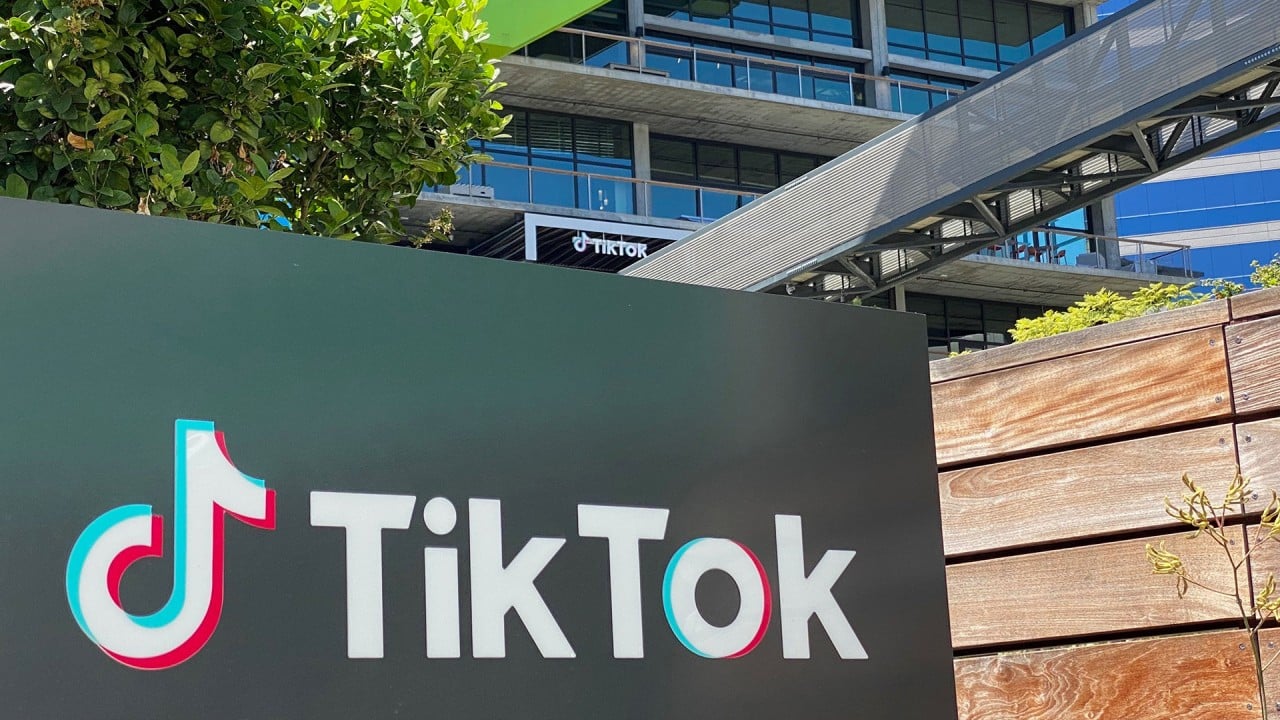Advertisement
Advertisement

TikTok owner ByteDance said to post slower revenue growth in 2021 amid China’s tech crackdown
- Privately held ByteDance was reported to have increased its revenue by 70 per cent to US$58 billion last year
- It marks a drop-off in performance for the world’s most valuable tech unicorn after posting a 111 per cent revenue growth to US$34.3 billion in 2020
Coco Fengin Beijing
Tech unicorn ByteDance, owner of hit short video app TikTok and its Chinese sibling Douyin, recorded significantly slower revenue growth last year, as Beijing’s harsh regulatory measures set back the company’s business expansion plans, according to media reports.
The Beijing-based firm saw its 2021 revenue reach US$58 billion, up 70 per cent from a year earlier, according to a Reuters report, citing two sources. It marks a drop-off in performance for the world’s most valuable start-up after posting a 111 per cent year-on-year revenue growth to US$34.3 billion in 2020.
That followed a report in November by tech news outlet The Information, which said ByteDance’s 2021 gross revenue – total sales before payouts to advertising agencies are deducted – was expected to increase 60 per cent to 400 billion yuan (US$63 billion).
Privately held ByteDance, which does not publish its financial results, declined to comment on Friday.
Still, ByteDance’s reported financial performance appears formidable when compared to the recent results of its larger Chinese internet peers Alibaba Group Holding and Tencent Holdings.
E-commerce giant Alibaba, owner of the South China Morning Post, saw its third-quarter revenue rise 29 per cent to a lower-than-expected 200.7 billion yuan. Tencent, operator of the world’s largest video gaming business by revenue and China’s biggest social media platform, posted a 13 per cent increase in revenue to 142.4 billion yuan, which missed analysts’ estimates.
The slower pace of growth last year for China’s major internet companies was largely attributed to Beijing’s crackdown on Big Tech, which is expected to continue this year. That has prompted ByteDance to shift gears.
Earlier this month, ByteDance’s strategic investment unit, which handles major transactions such as mergers and acquisitions, was disbanded and its employees reassigned to other business units.
ByteDance dissolves unit in charge of external investments
ByteDance dissolves unit in charge of external investments
In November, ByteDance announced a sweeping reorganisation that will see its sprawling, algorithm-driven operations divided into six business groups: TikTok, Douyin, work collaboration provider Lark, business services unit BytePlus, video gaming firm Nuverse and education technology unit Dali Education.
Later the same month, however, ByteDance was reported to cut at least 1,000 jobs at its education unit amid Beijing’s ban on off-campus tutoring services. In December, the company took down audio chat app Feiliao.
The company’s TikTok unit, meanwhile, appears to be distancing itself from certain aggressive marketing campaigns. TikTok’s global head of marketing, Nick Tran, recently left the company for unspecified reasons, according to two people with knowledge of the matter.
Tran was behind TikTok’s efforts to help creators launch non-fungible tokens and a partnership with US-based Virtual Dining Concepts to launch delivery service TikTok Kitchens. In an internal group chat, ByteDance founder Zhang Yiming was said to have described the TikTok Kitchens campaign as a “cheap marketing stunt”, which made it appear like the company was entering the restaurant business, according to a report by Beijing-based media outlet Pandaily.

Post

